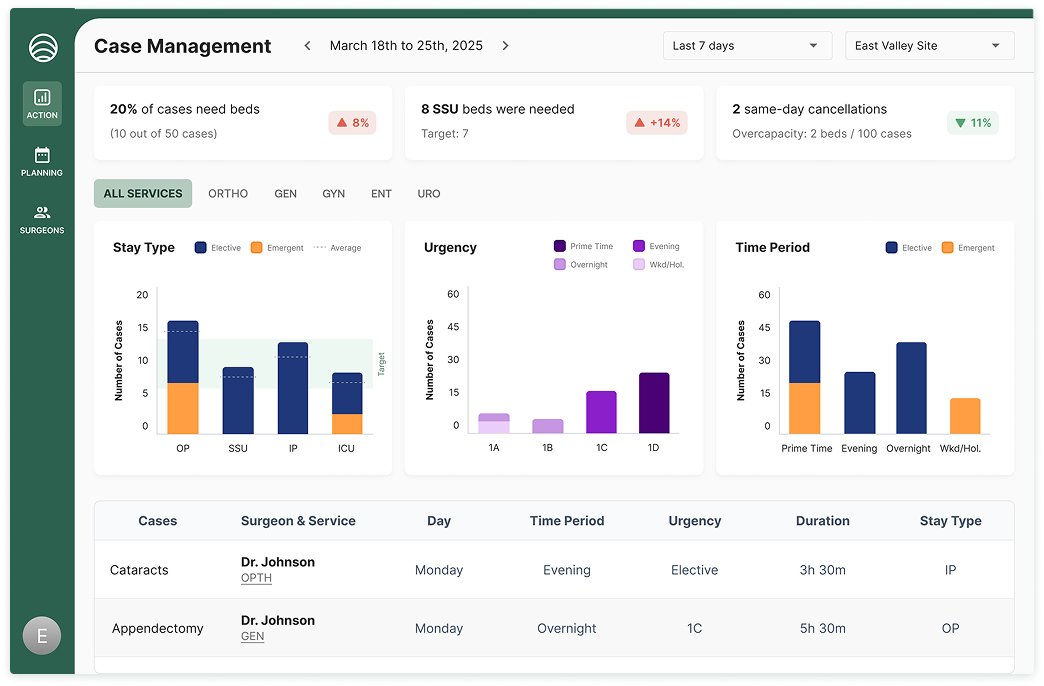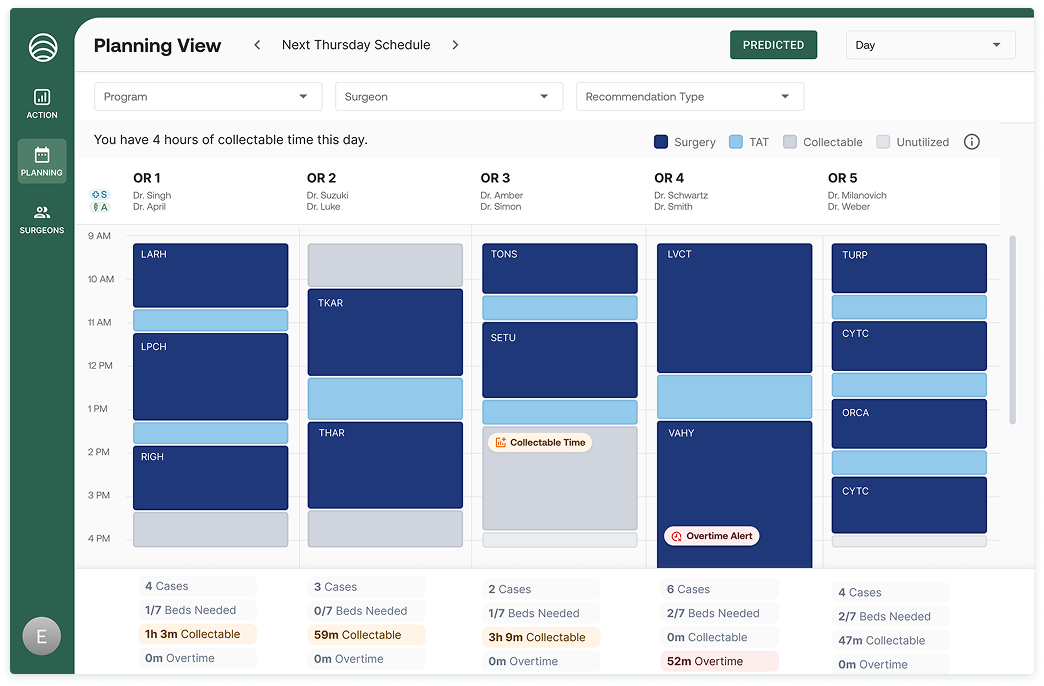calculate
Get a personal snapshot of your surgical efficiency and see how you can boost time, capacity and revenue.
Sifio Health’s digital twin platform enabled a Canadian health system to increase surgical throughput while dramatically reducing costly overtime. One of the system’s high-volume ambulatory sites, operating 8 ORs across 5 specialties, had long struggled with staff burnout, inconsistent schedules, and extended surgical wait times. Within a year of implementing Surgitwin™, the hospital performed 924 more surgeries while cutting overtime hours by 73%, all without additional staff or infrastructure. The AI-powered solution helped leaders move beyond the assumption that overtime was necessary to maintain volume — revealing that better planning, not longer hours, was the key to improved performance. With real-time data and daily optimization guidance, staff gained predictability, morale improved, and operational waste was reclaimed.”
The health system’s perioperative teams were stretched thin. Unpredictable workloads, high absenteeism, and reliance on agency workers left staff burned out and unable to plan their personal lives. Leadership had little visibility into when and why surgical blocks exceeded scheduled time or sat underutilized. Despite running over 12,800 cases a year, nearly 1,000 more surgeries could have been completed using time lost to early finishes, conservative scheduling, and delays.
High rates of avoidable overtime across most surgical services The underlying inefficiency wasn’t surgical skill — it was a planning problem.
The hospital partnered with Sifio Health to implement its AI-powered digital twin platform, Surgitwin™, which integrates seamlessly with existing perioperative systems to provide predictive decision support and planning recommendations.
By empowering perioperative teams with real-time, actionable data, leadership could move from reactive adjustments to proactive planning.


The health system deployed Sifio Health’s AI-powered digital twin, Surgitwin™, to diagnose inefficiencies and deliver data-driven recommendations in real time. The platform integrated seamlessly with existing systems and supported hospital teams through three coordinated modules:
